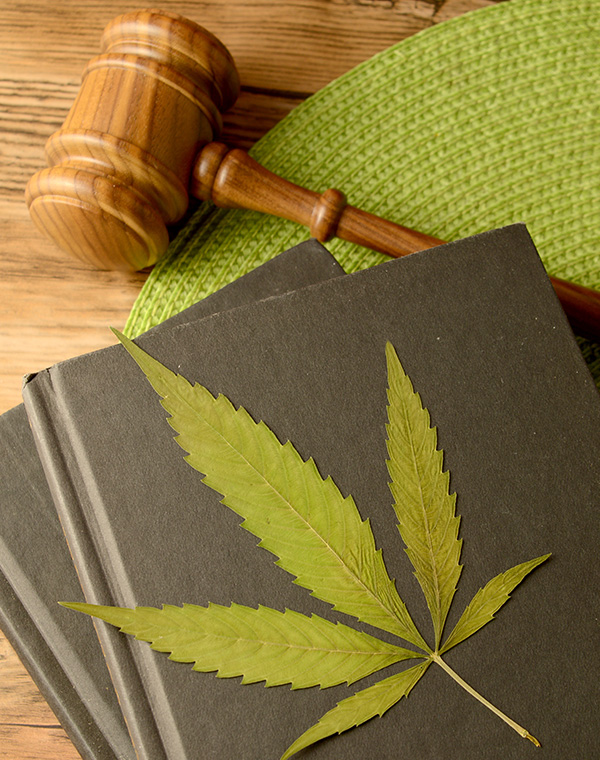Drug Offences
Drug offences can carry very serious penalties depending on the types and quantities of drugs involved. Defending drug offences is also a different procedure than defending regular criminal charges. This is because drug offences are not contained within the criminal code. Rather, drug offences are governed by the Controlled Drugs and substances Act. These offences are not prosecuted by regular Crown Attorneys, instead, they are prosecuted by Federal Crown Attorneys.
IF YOU HAVE BEEN CHARGED WITH ANY DRUG OFFENCES, CALL AN EXPERIENCED CRIMINAL LAWYER AT KRASKA LAW IMMEDIATELY!
At Kraska Law, Robert Kraska is a former Federal Crown Attorney who worked as an agent for the Federal Government’s Public Prosecution Service of Canada (PPSC). Robert spent 5 years of his legal career devoted specifically to prosecuting drug offences. As a result, our team of lawyers is specially positioned to defend against drug offences. Robert made his reputation by prosecuting all varieties of drug offences, and he now applies that knowledge and experience to your defence. Robert and his team have the knowledge to expertly guide you through this process, and be the best defence for your drug offences.

What are Drug Offences?
Drug offences pertain to the import, export, production, trafficking, and possession of illegal drugs within Canada. Drug offences are all contained within the Controlled Drugs and Substances Act (CDSA). This is a piece of Federal legislation, and is enforced by the Federal Government. The various types of drug offences in the CDSA include:
- Possession
- Trafficking
- Possession for the Purpose of Trafficking
- Importing
- Exporting
- Production
The prosecution of drug offences is not carried out by the Crown Attorneys that are employed by the Provincial Ministry of the Attorney General. Offences under the CDSA are prosecuted by the Federal Government through the Public Prosecution Service of Canada.
The most commonly prosecuted drug offences are possession and possession for the purpose of trafficking of controlled substances. Despite possession being the main element of these offences, it is not defined in the CDSA:
Section 2 (1) In this Act,
…
“possession”
“possession” means possession within the meaning of subsection 4(3) [forms of possession defined] of the Criminal Code; …
This means that the CDSA adopts the same definition of possession, as the Criminal Code, which defines possession as follows:
Possession
Section 4
(3) For the purposes of this Act, (a) a person has anything in possession when he has it in his personal possession or knowingly
(i) has it in the actual possession or custody of another person, or
(ii) has it in any place, whether or not that place belongs to or is
occupied by him, for the use or benefit of himself or of another person; and
(b) where one of two or more persons, with the knowledge and consent of the rest, has anything in his custody or possession, it shall be deemed to be in the custody and possession of each and all of them.
This means that the main elements that need to be proven for possession, are knowledge and control over the substances in question. If it is a case of possession for the purpose of trafficking, the Crown must put for the additional evidence to prove beyond a reasonable doubt that the possession was for the purpose of trafficking. These are called indicia of trafficking. Some examples of indicia of trafficking are:
- Large quantity of drugs
- The manner in which it is packaged
- Possessing large amounts of cash
- Possession numerous cell phones
If seeking a conviction, the prosecutor must show enough indicia to prove to a judge that the drugs were for the purpose of trafficking.
Penalties for Drug Offences
The available penalties for drug offences can be quite diverse and they depend on a number of different factors. The most significant factor is which drug offence you are charged with. A charge for simple possession has the lowest possible sentence available to it, an absolute discharge. Whereas other offences under the CDSA, such as trafficking or possession for the purpose of trafficking have an available maximum of life in prison.
In some circumstances, trafficking offences can even incur minimum jail sentences of one or two years.
The other main factor that will impact the available penalty for any offence is what type of drug is in question. The CDSA divides drugs up into several Schedules. The most serious drugs are contained in Schedule I, slightly less serious in Schedule II, and so on. Some examples of Schedule I drugs include:
- Fentanyl
- Heroin
- Cocaine
- Crack
- Oxycodone
- Methamphetamines
- Hydromorphone
- Morphine
This is just a small sampling of the drugs that are contained within Schedule I. Our team of experienced drug offence lawyers would be able to identify the specific circumstances of your charges, and advise you accordingly.


Additional Penalties of Drug Offences
Drug offences can also affect a person’s ability to get bail. Normally, the Crown must prove why a person should stay in bail. However, when charged with trafficking or possession for the purpose of trafficking drug offences, the burden of proof at bail shifts. The bail hearing becomes a reverse onus bail hearing.
Order of detention
Section 15 (6) Unless the accused, having been given a reasonable opportunity to do so, shows cause why the accused’s detention in custody is not justified, the justice shall order, despite any provision of this section, that the accused be detained in custody until the accused is dealt with according to law, if the accused is charged
[…]
(d) with having committed an offence punishable by imprisonment for life under any of sections 5 to 7 of the Controlled Drugs and Substances Act or the offence of conspiring to commit such an offence.
This means that if you are charged with an offence, contrary to one of Sections 5 – 7 of the CDSA, the burden shifts and you are placed in a position where you have to prove why you should be released, as opposed to the Crown having to prove you should remain in custody.
Being charged with drug offences under section 5 of the CDSA also has unintended consequences in that if found guilty an offender will be subject to a mandatory firearms prohibition. As well, the Judge has the option to Order an offender to submit samples of their DNA.
At Kraska Law, our team of lawyers are well versed in the law surrounding drug offences. This is because they are led by a former Federal Prosecutor, whose career was devoted to the prosecution of drug offences.
How an Experienced Drug Offence Lawyer Can Help You?
A criminal lawyer experienced in the laws surrounding drug offences will be able to expertly guide you through the criminal justice system. Our experienced criminal lawyers know how to handle drug offences, and they will seek to provide your best defence.
If you are charged with drug offences, you should call a lawyer for advice at the earliest possible opportunity. The police may want to interview you, to try and convince you to answer their questions. The police are allowed to lie to you to encourage you to answer questions:
- The police may say that they are just investigating
- That they have not yet decided to lay charges.
- They may say that they just want your side of the story.
- They may comment that they just want to complete their file.
- They may try to gain your trust and compliance with small-talk about irrelevant topics.
- The police may try to guilt you into providing answers by suggesting that “if you were innocent, you would just tell your side of the story.”
A failure to answer police questions, or provide your version of events, is not a sign of guilt, you have a right to remain silent. Your silence cannot be used against you later.
Our experienced criminal defence lawyers will make sure that you are aware of that right, as well as all of the other rights you have when charged with a drug offences. Specifically, a drug lawyer will be able to identify any related, indirect consequences of being charged with assault offences, such as:
- Non-communication / No-contact Orders
- Employment consequences
- Travel restrictions
- Immigration consequences
- Weapons Prohibitions
- DNA Orders
Our experienced drug lawyers will ensure that you are informed of all of these items. At Kraska Law we are well versed in drug offences. We will identify your specific concerns, and fight to protect your interests. We will strive to successfully negotiate the end of your case at the earliest opportunity. If we are not able to arrive as a favorable negotiation, then we will fight the case at trial. In either instance, we will strive to be the best assault lawyers for your case.
Why Our Clients Choose Kraska Law
1. We Listen
At Kraska Law, you are not just another case, we care. We listen to all of our clients, keep them updated about their case, and actively work with our clients to put forth their best defence.
2. Experience
Our team boasts over 40 years of combined experience in criminal law. We have experience prosecuting and defending criminal cases. With that knowledge and experience, we’ve done it all.
3. 24/7 Open Communication
Our team is always available to help and a team member is always available to answer your questions. We encourage communication by not charging hourly or per phone call, so our clients are never pressured into deciding whether or not they should call us.
4. Free Consultation
We offer free consultations, 24/7. You cannot choose when emergencies happen, so, at Kraska Law, we are always ready to respond.
5. Flexible Payment Plans
We work with our clients to create structured payment plans that work for you.
6. Success Rate
Above all else, our clients choose us for our results. Our clients recommend us to their family and colleagues because of the results we have achieved for them. We will strive to be the best criminal defence lawyers for your case, and earn that same recommendation from you.
Call today for your free and confidential consultation with one of our top-rated criminal lawyers experienced in defending drug offences!
